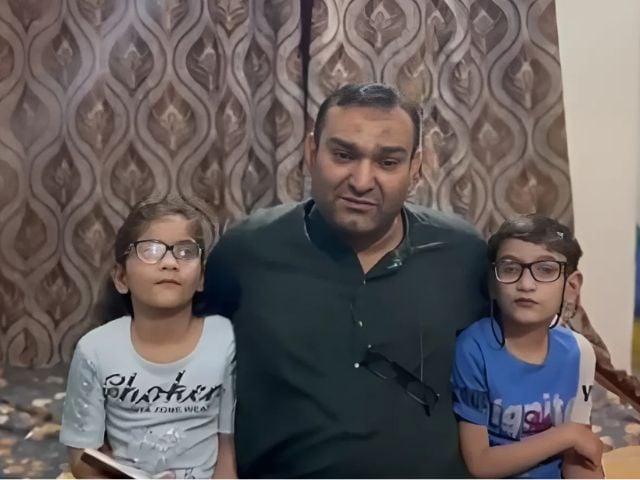The father, two children sent by India last week, praised the head of the Army staff, the general also assumed responsibility for the treatment of sick children.
The children, Abdullah (9) and Mansa (7), both who suffered from congenital heart disease, had traveled with their father, Shahid Ahmed, Faridabad, India, in April for surgery that save lives.
After successful pre -surgical evaluations on April 22 and 23, the family ordered the Regional Registry Office of Foreigners of India on April 24 to leave the country within 48 hours.
The expulsion occurred following the attack of Pahalgam in the Pahalgam area of Jammu and Kashmir (Iiojk) of India, after which the Indian government took the controversial step of deporting the Passieni patients who were in treatment.
Shahid Ahmed, resident of Hyderabad, Sindh, condemned the decision, describing it as “inhuman and unusual.”
“There is no greater religion than humanity. Even Hinduism teaches compassion,” he said, adding that he had been ensuring an Indian visa for seven years for the treatment of his children.
Upon his return to Pakistan, General Munir facilitated child admission to the Institute of Cardiology of the Armed Forces (fans) in Rawalpindi. Shahid expressed a deep gratitude to the Army Chief, saying that the attention in the fans has far exceeded his expectations.
Dr. Mehboob Sultan of fans confirmed that both children suffer from Fallot tetralogy, a congenital condition that involves heart defects and underdeveloped pulmonary arteries.
Its treatment will include surgeries in phases, with the first phase established in the next few days.
Brigadier Dr. Khurram Akhtar declared that a fond is fully equipped to treat complex heart conditions in children and adheres to international medical standards. “There is no need to send such cases abroad. We have performed numerous successful surgeries here,” he added.
The tensions between India and Pakistan reached new heights after a deadly attack on April 22, 2025, when 26 men were killed in a tourist site in Pahalgam, in illegally occupied Indians Jammu and Cashmira (Iiojk). India quickly blamed the Pakistani elements for the attack, but there were no evidence to support the claim, what Islamabad denied vehemently.
In response to the attack, the Indian cabinet security committee approved several reprisal measures on April 23, including the closure of the Wagah-Attari land transit point, a travel advice that urges Indian citizens to avoid Pakistan, a formal notification of the suspension of the waters treaty and the revocation of multiple categories of national visas for Pakistani.
On April 24, the National Security Committee (NSC) of Pakistan issued a severe warning, stating that any attempt by India to block the water flow in Pakistan would be considered an act of war. The NSC also approved the closure of the Wagah border crossing.
The next day, on April 25, the Pakistan Senate unanimously approved a resolution that rejected Indian accusations with respect to Pahalgam’s attack, calling them without foundation and politically motivated.
The tensions intensified on April 26, when the High Pakistani commission in London was destroyed during a protest for hundreds of pro-india and pro-bjp protesters.
Protesters caused property damage, including broken windows and splash of saffron paint. Pakistan accused India of encouraging violence, with Federal Information Information Minister Attaullah Tarar, condemning acts as supported by the “Indian State and agencies.” The British police then arrested two suspected people of participation in the incident.




